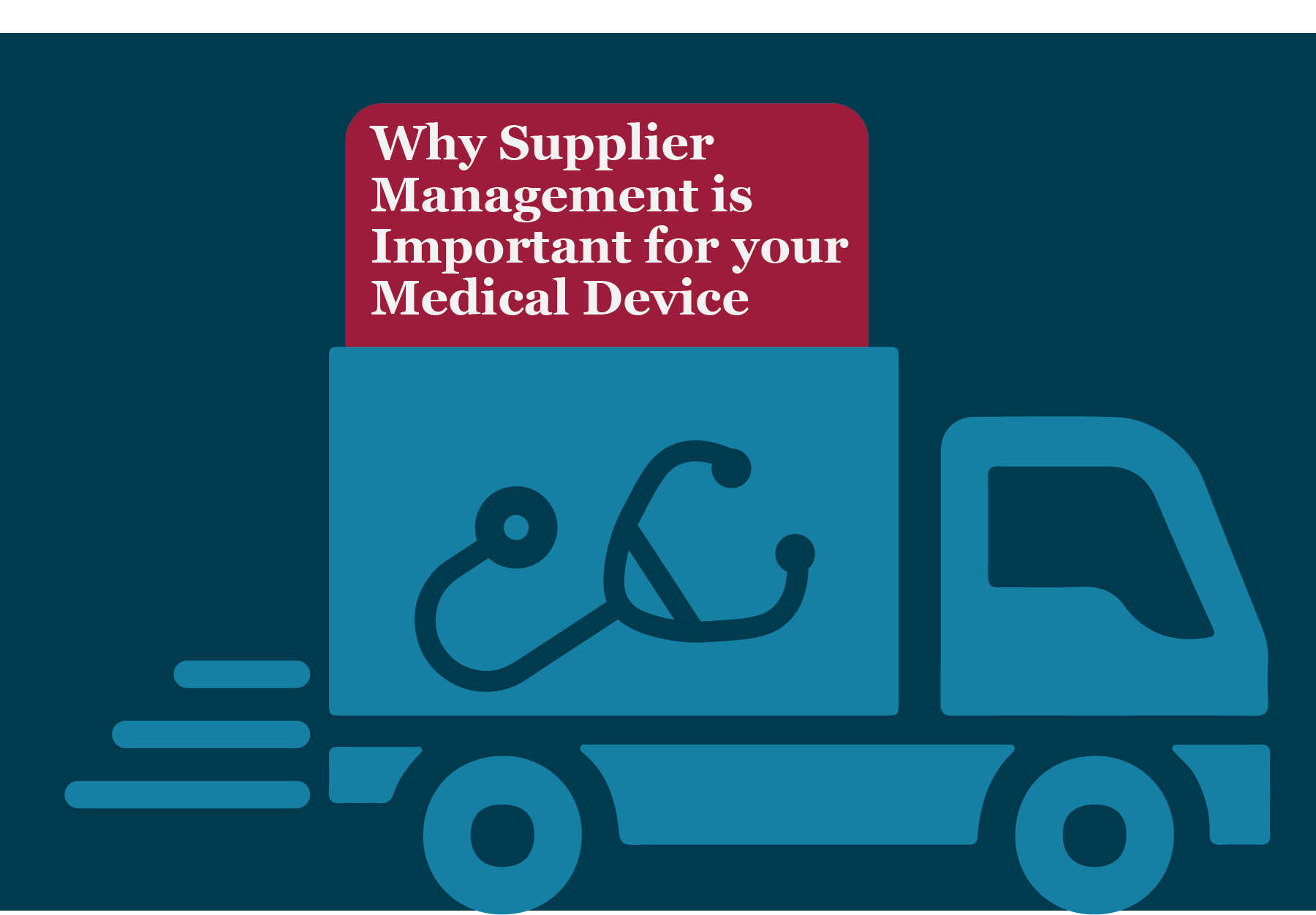For manufacturers of medical devices, it can be an easy trap to fall into only focusing on the compliance of your device and forgetting your supply chain. The FDA has strict regulations around Purchase Controls (supplier management) that are outlined in 21 CFR §820.50 as part of the Quality System Regulation. These regulations include evaluating all suppliers, contractors, and consultants based on their ability to meet specified requirements, defining the extent of the control necessary for the purchased product based on that evaluation, and maintaining records of approved suppliers. The regulation also requires that manufacturers maintain purchasing data, such as Quality Agreements with the suppliers.1
So why does the FDA care about purchasing controls or supplier management for medical devices? The safety and effectiveness of the finished device is dependent on the quality of the components, parts, and raw materials that it’s built from. Much like how you want to ensure the engineering and design work done in house for your device is safe, you want to do the same for anything you purchase from a 3rd party. This will begin with evaluating any supplier you choose to purchase from and keeping your approved supplier list (ASL) up to date. It is important to evaluate the supplier prior to putting them on the ASL because you don’t want to do all of the work to get them approved and then realize that what you order doesn’t meet your specification or there are supply problems. Sometimes suppliers aren’t a good fit simply because of business issues, and not necessarily quality issues. Is it hard to get a hold of them, or is their purchasing process overly complicated causing delays? There are several attributes to consider when evaluating and approving a supplier, and it’s up to you as the device manufacturer to determine what will be the best fit.
Once you’ve completed your initial evaluation of a supplier and put them on your ASL doesn’t mean you are done assessing them. You should be reviewing your ASL at some regular intervals and you should be conducting supplier audits using a risk-based approach. For example, any suppliers evaluated to be high-risk should have an on-site audit conducted whereas a low-risk supplier doesn’t need to be audited. It is important to note that the FDA will want to review any procedures for how you conduct supplier audits and not necessarily any actual results from the supplier audits.2
Overall, it is crucial to have a thorough supplier management program since it is a large part of what the FDA will inspect for your device. There are a lot of pieces to the supplier puzzle for a medical device, and you want to make sure you are effectively managing them all. EMMA International can help you build and sustain a robust and compliant supplier management program. Contact us at info@emmainternational.com or call 248-987-4497 to see how we can help!
1Quality System Regulation, 21 CFR § 820.50 retrieved on 12/10/2019 from: https://www.accessdata.fda.gov/scripts/cdrh/cfdocs/cfCFR/CFRSearch.cfm?fr=820.50
2Cabassa (2015) FDA Purchasing Controls [PowerPoint slides] retrieved on 12/10/2019 from: https://www.fda.gov/files/drugs/published/Purchasing-Controls—Devices.pdf






